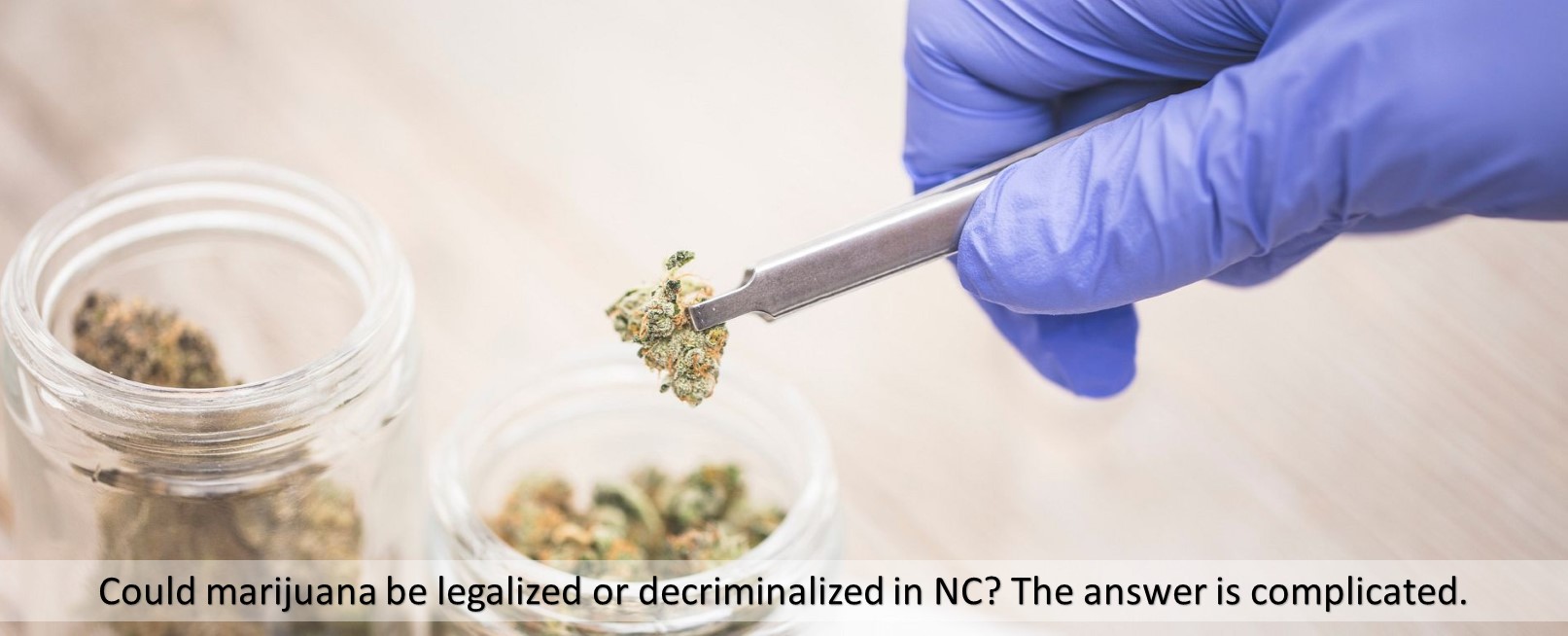
RALEIGH
One of the highest-ranking Republicans in the North Carolina legislature supports medical marijuana.
Brunswick County Sen. Bill Rabon, chairman of the powerful Senate Rules Committee, introduced a bill Wednesday to legalize marijuana for medical use. Senate Bill 711 wouldn’t make pot fully legal — it would still be against the law for most people to use it. But it would recognize marijuana as having medical potential, and authorize doctors to prescribe it to patients in certain cases.
“Modern medical research has found that cannabis and cannabinoid compounds are effective at alleviating pain, nausea, and other symptoms associated with several debilitating medical conditions,” the bill states.
Rabon couldn’t be reached for comment Thursday morning. A spokesman for Senate leader Phil Berger, a Republican from Eden, said Berger would defer to Rabon to comment on the bill.
A poll from Elon University earlier this year found that 73% of North Carolina voters support medical marijuana, including nearly two-thirds of Republicans. And a small majority, 54% in the poll, said they would support fully legal marijuana.
The News & Observer reported Wednesday on numerous bills that Democrats had filed with various options for decriminalizing marijuana or making it legal. That could mean legalizing it for medical use, as Senate Bill 669 would do, or recreational use, under Senate Bill 646.
Democratic Sen. Jay Chaudhuri of Raleigh, who sponsored a bill for full legalization, told the N&O that while that plan is likely just a pipe dream this year, he did expect medical marijuana to at least receive a committee hearing — and possibly even be allowed to come up for a vote.
“I suspect there may be some willingness to give the medical marijuana bill a hearing, and maybe even pass it this session,” he said.
A little while later, Rabon filed this bill. Called the “Compassionate Care Act,” the bill notes that 36 other states as well as the District of Columbia have already legalized medical marijuana.
Rabon’s committee, the Rules Committee, is the gatekeeper of the Senate. Any bill that gets a vote on the floor has to pass through Rules first. Bills might also be sent to other committees before Rules, though, and this one likely will when the legislature comes back next week.
MARIJUANA AS MEDICINE
One of the arguments for medical marijuana that its supporters make is that its pain-relieving properties allow people to avoid taking opioid pills, which are highly addictive, unlike marijuana.
The opioid epidemic has disproportionately affected conservative-leaning areas of North Carolina, as overdose deaths have been concentrated among white people, particularly in rural areas.
Just outside of Rabon’s southeastern district is Wilmington — which is often cited as one of the nation’s hardest-hit cities for opioid abuse.
Wilmington Sen. Michael Lee, a fellow Republican, joined Rabon in sponsoring the bill. So did Winston-Salem Sen. Paul Lowe, a Democrat.
Some veteran advocacy groups have also pushed medical marijuana as not just a painkiller alternative, but also as a potential treatment for mental health problems — anxiety and PTSD, for instance. The Veterans Affairs system can’t recommend or prescribe marijuana to veterans who get their care at VA hospitals, since the drug is still illegal at the federal level. But since most states do allow medical marijuana, the VA also does not punish or call the cops on veterans who use it.
“Veteran participation in state marijuana programs does not affect eligibility for VA care and services,” the VA’s official website states. “VA providers can and do discuss marijuana use with Veterans as part of comprehensive care planning, and adjust treatment plans as necessary.”
Sen. Wiley Nickel, one of the Democrats pushing for changes, said research shows marijuana is a legitimate treatment for some medical problems and works well enough that people will use it to medicate, whether legal or not.
Before he died, Nickel’s father alleviated some of the symptoms of his cancer by illegally using marijuana. Nickel said he doesn’t want others to have to risk breaking the law just to get help.
“I wouldn’t want to deprive anyone of the means to help in a situation like my father’s,” Nickel said.
